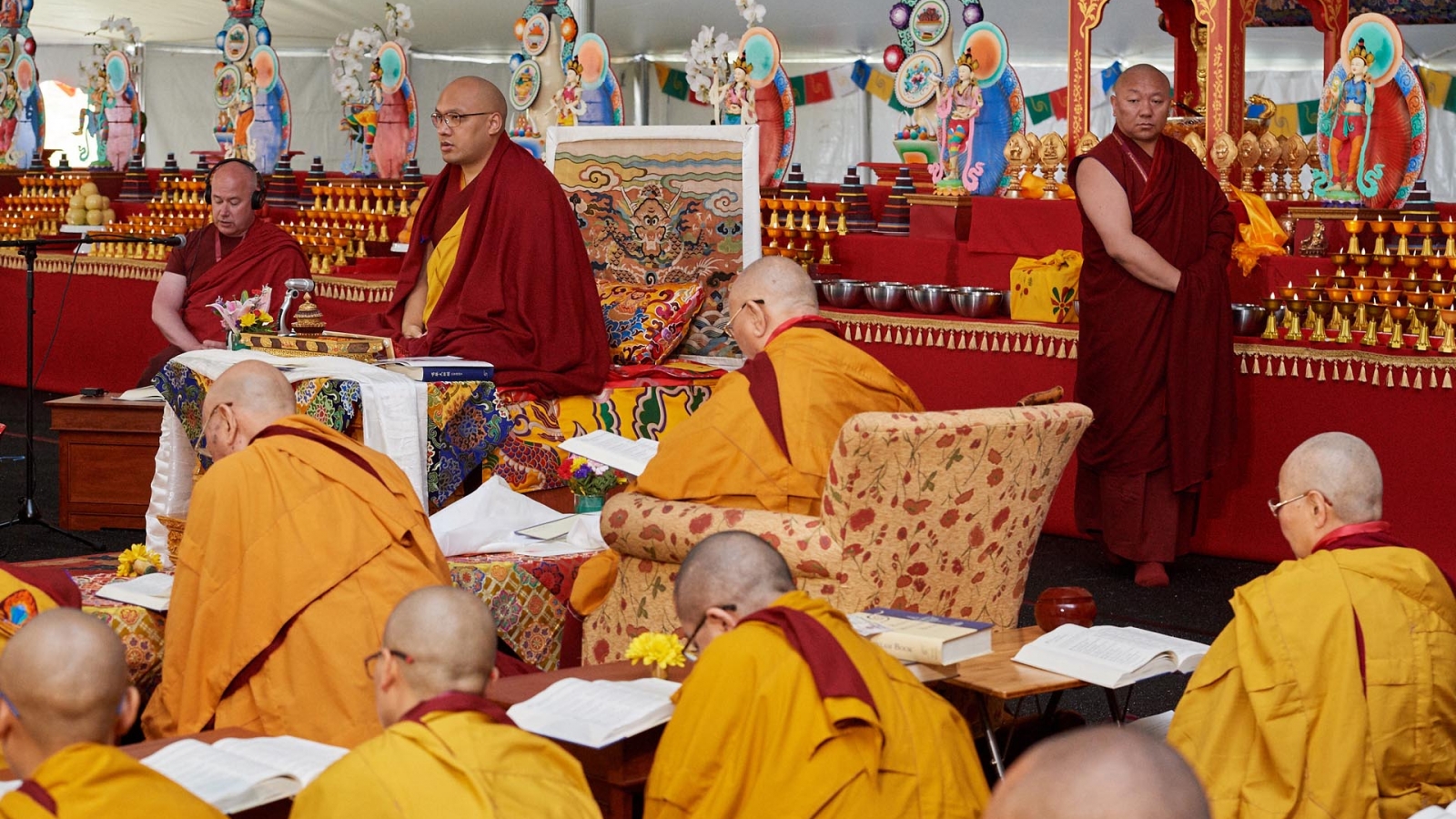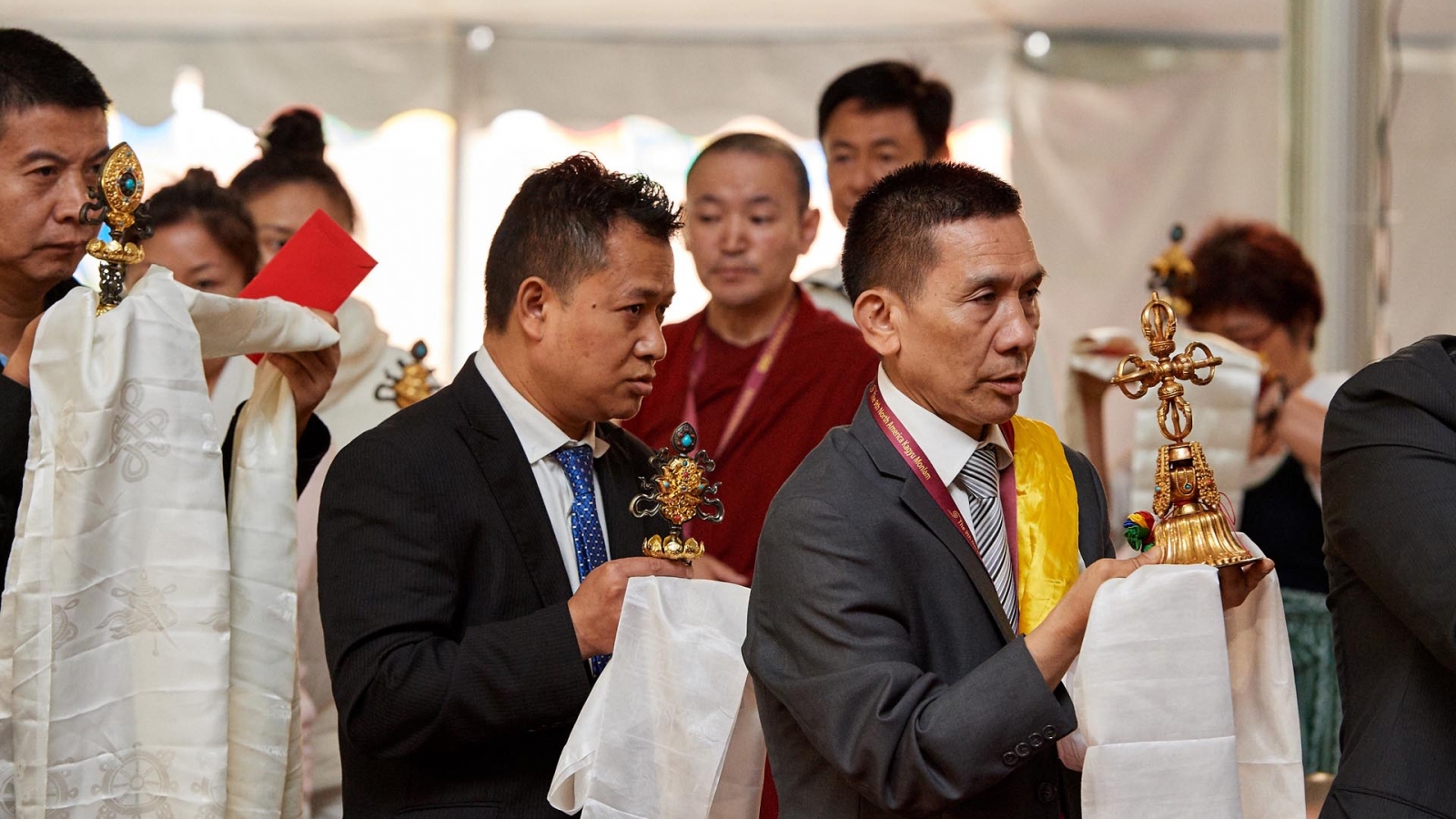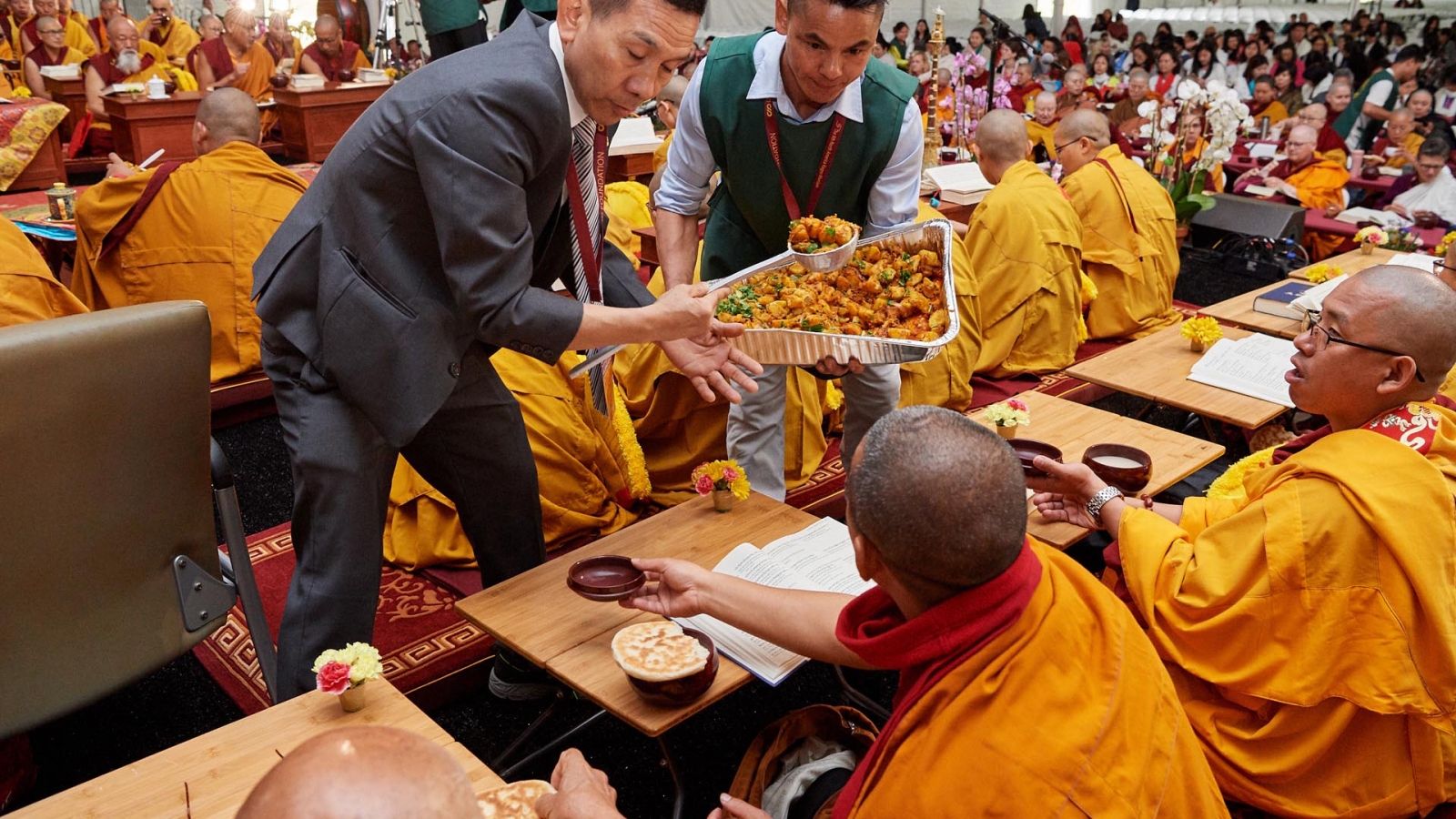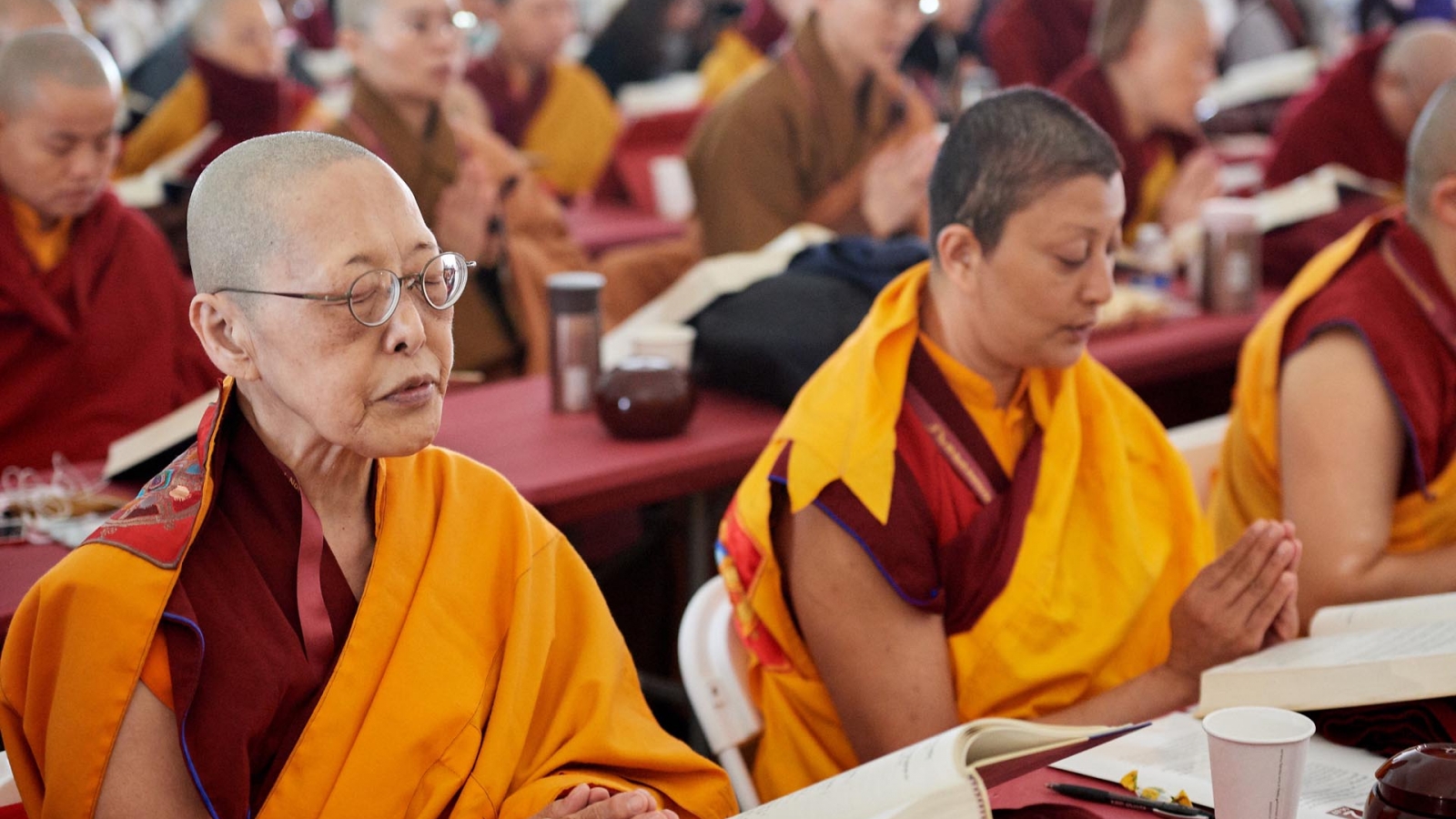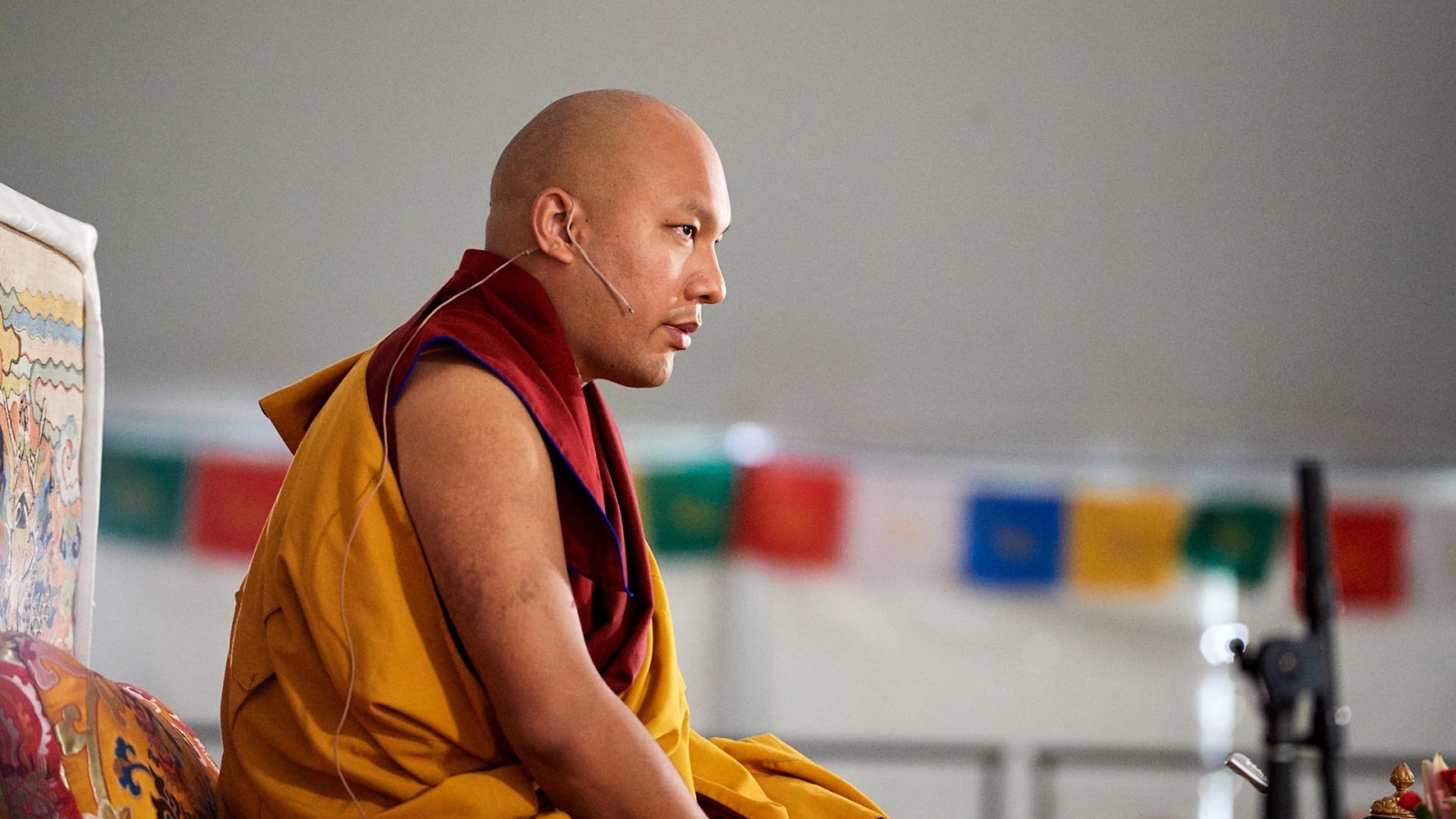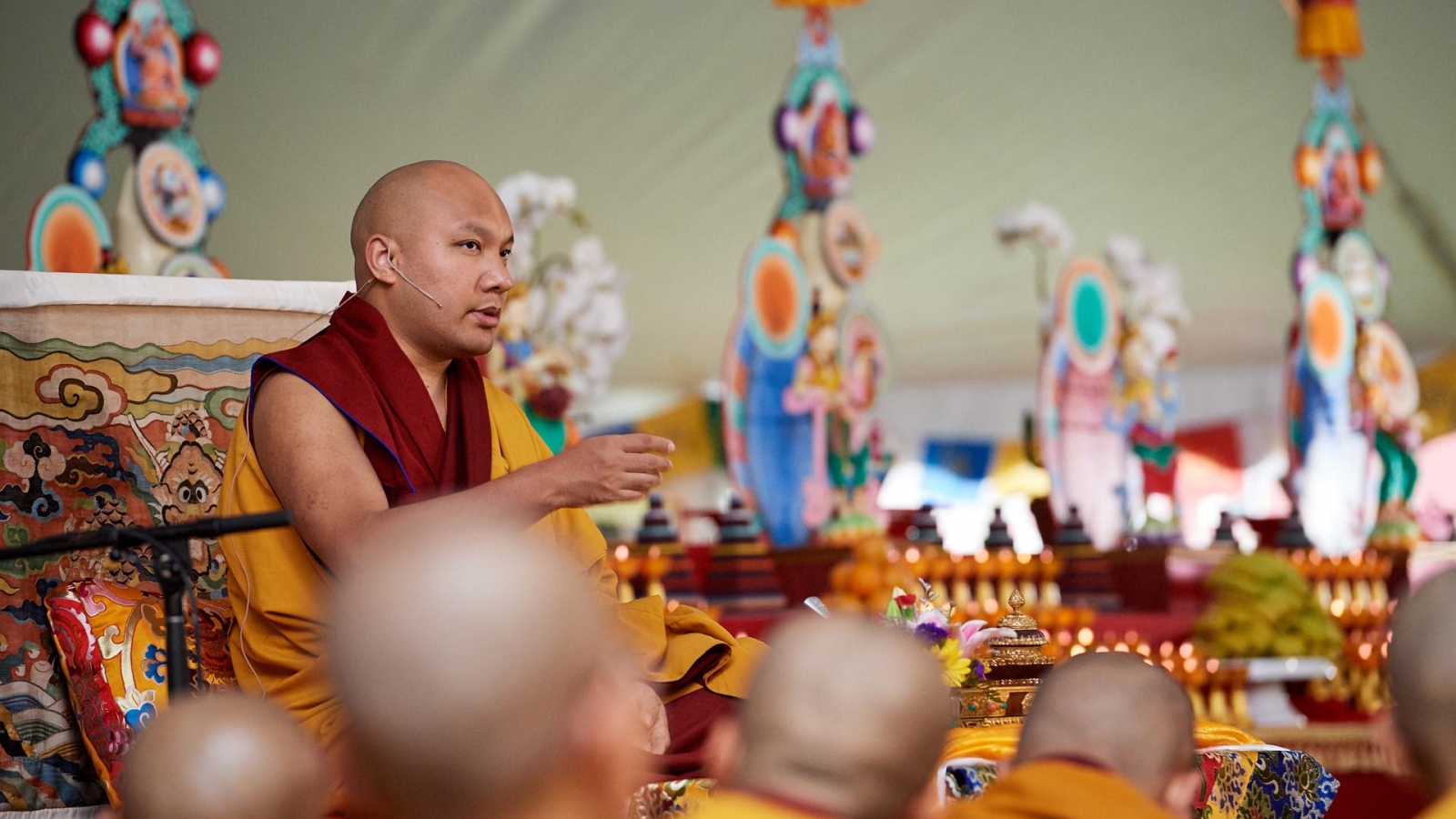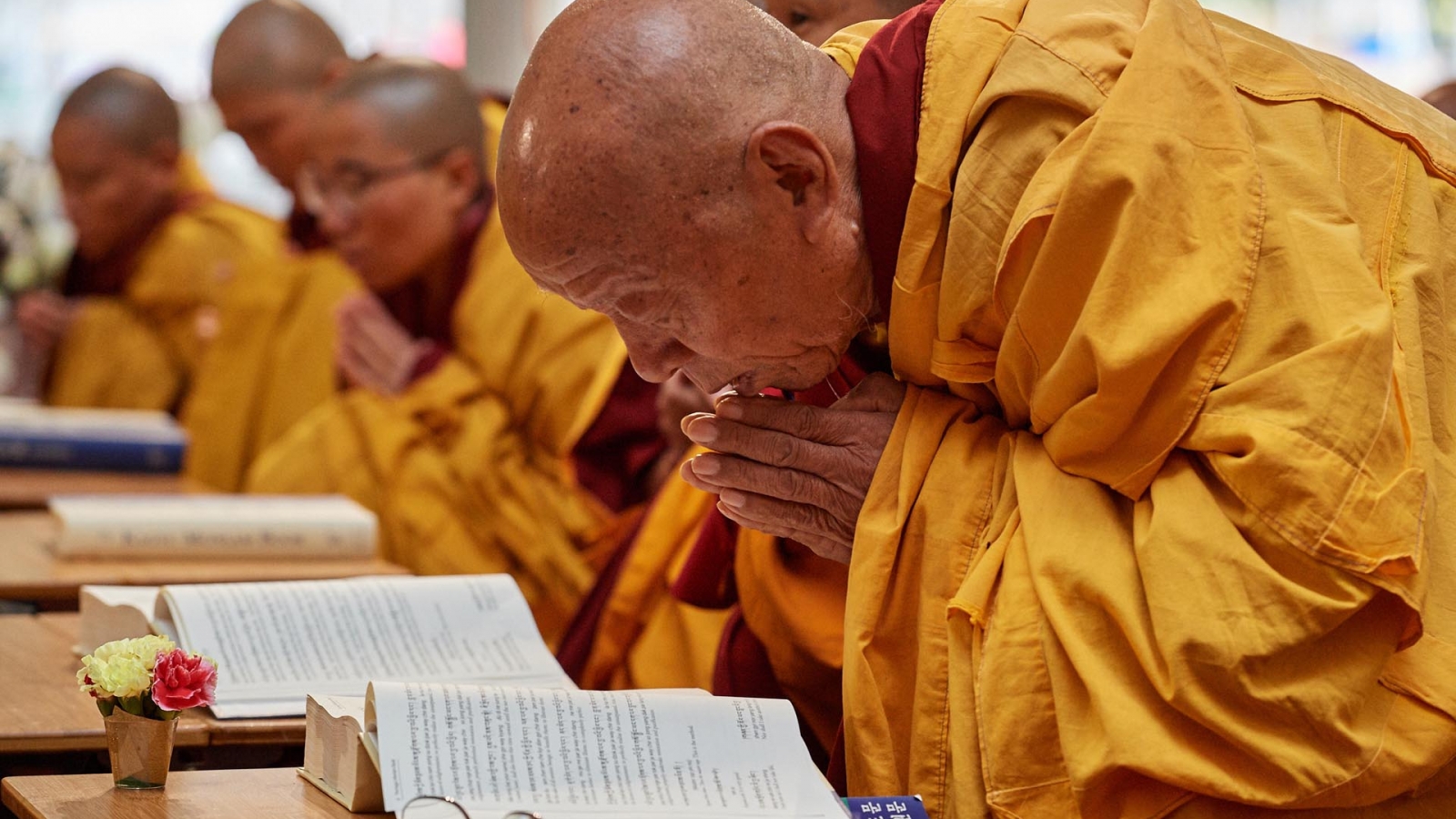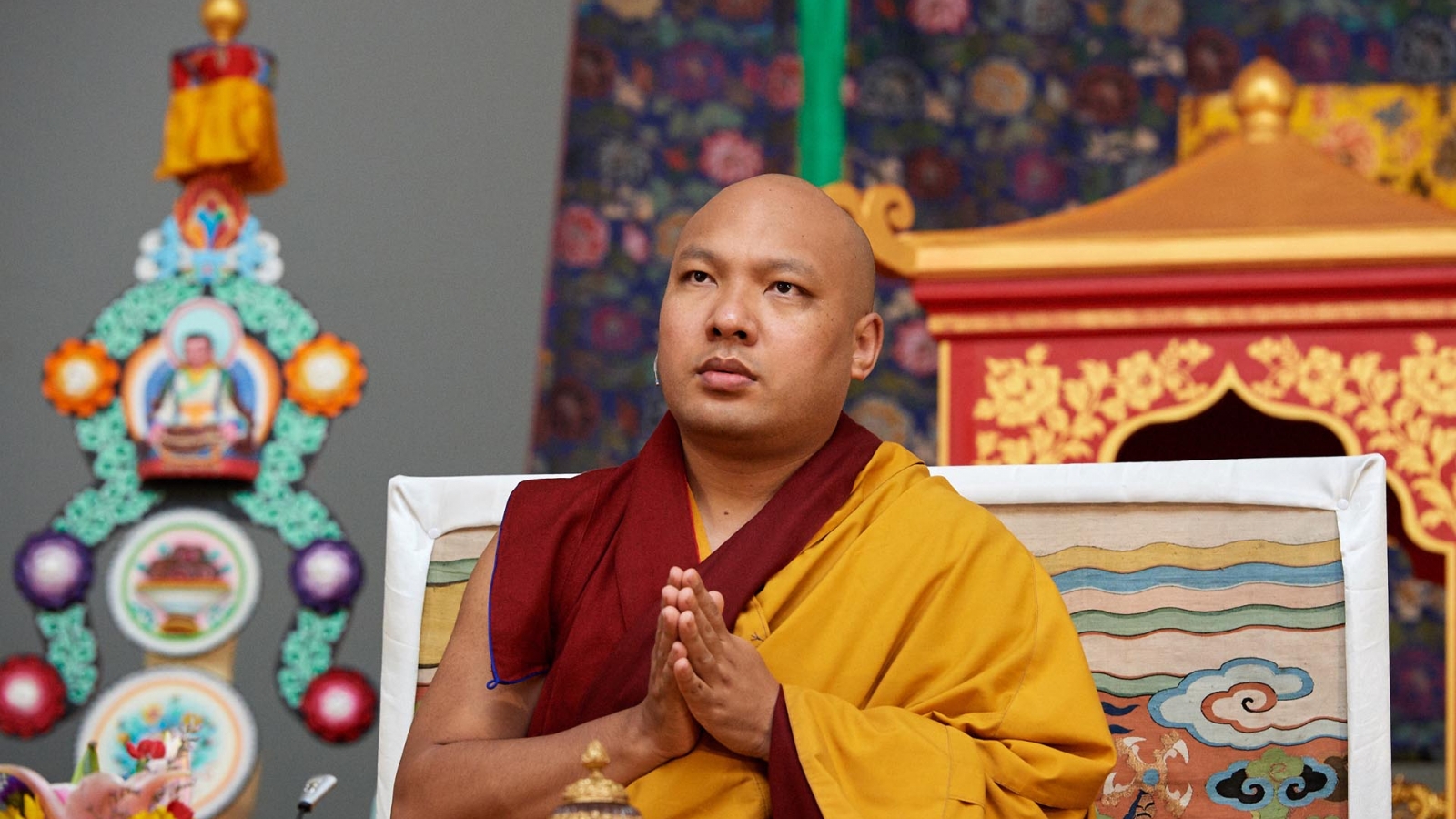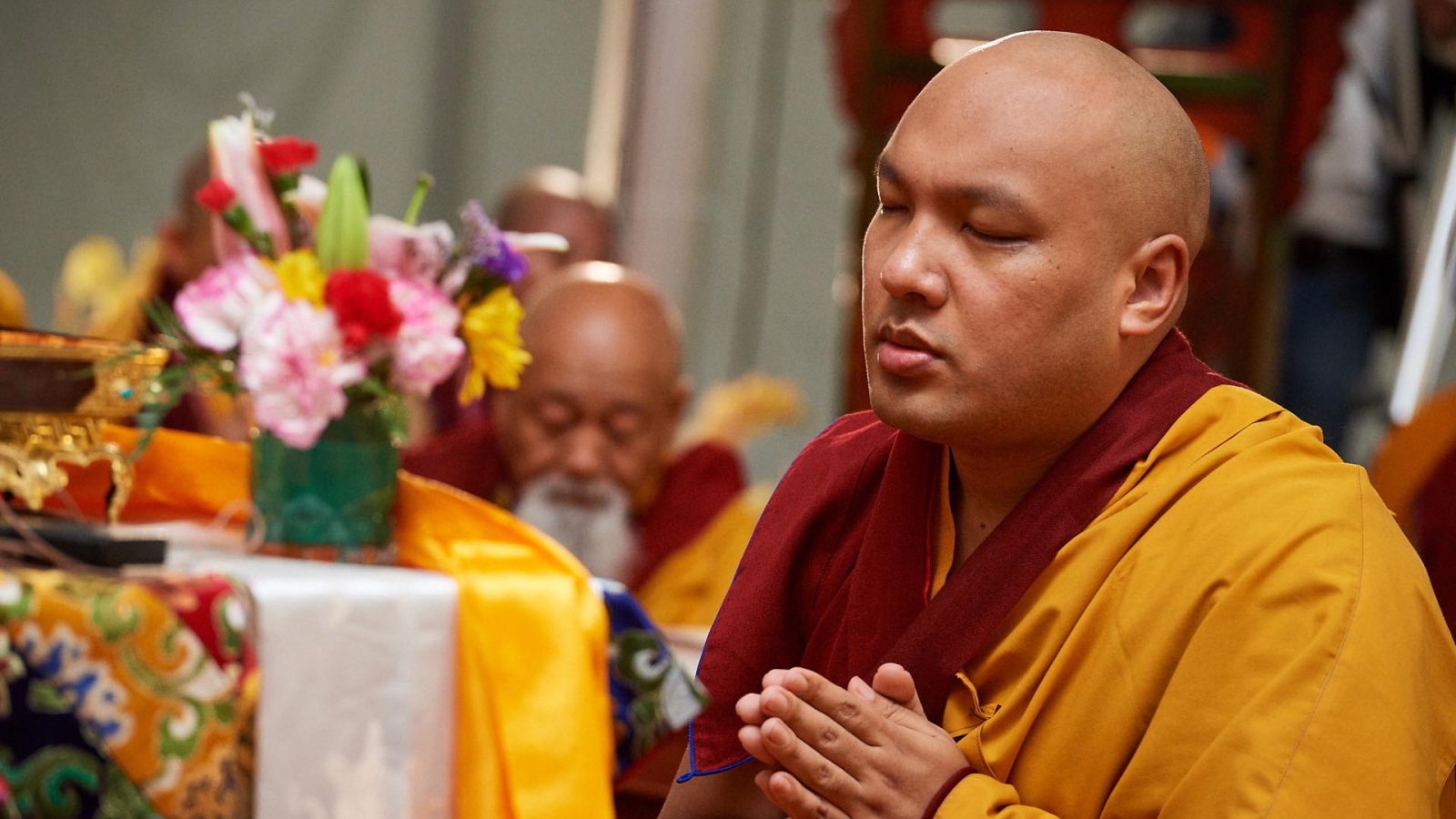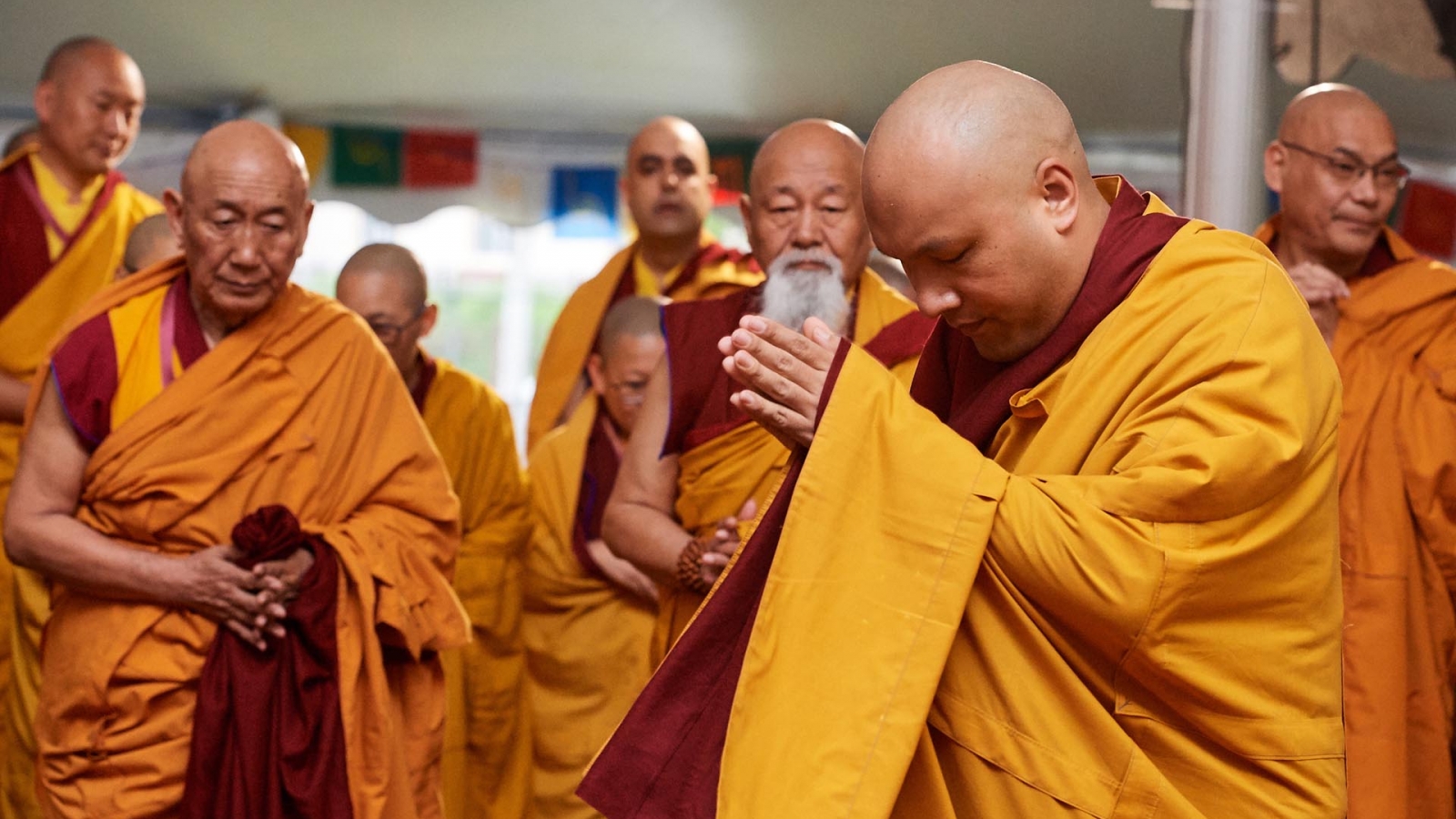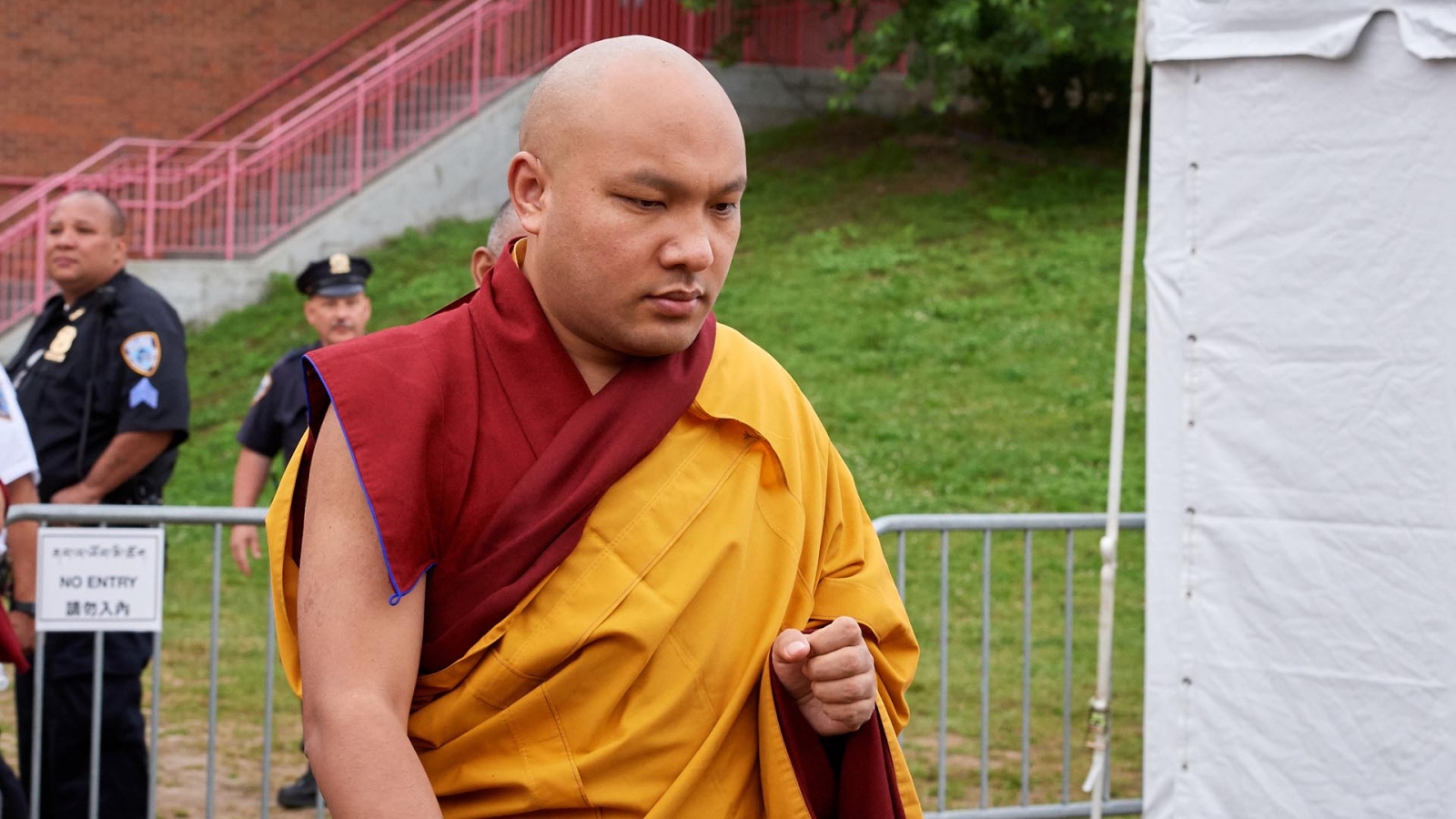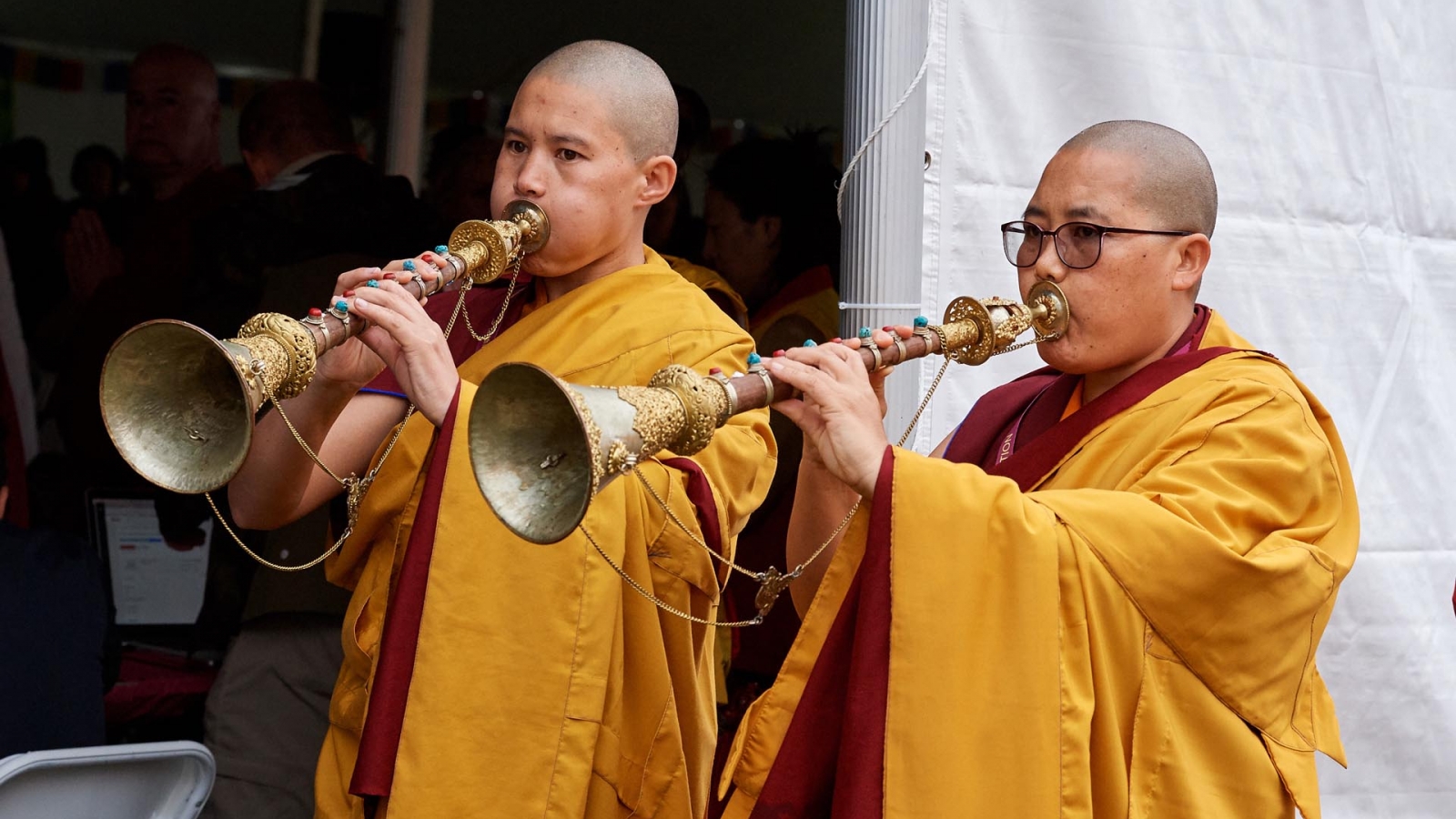The North American Kagyu Monlam at York College, Queens, New York — June 7, 2018
On this second day of the Monlam, as on the first, the Karmapa was led into the shrine by two nuns playing the jaling (oboe-like horns). This was quite remarkable, as outside the context of a nunnery, ordained women usually take a back seat to the monks who would normally be the musicians. The Karmapa has also chosen three nuns to be the chant masters for this North American Kagyu Monlam, which is a further instance of his encouraging the nuns to take on greater roles in the ordained community. Some of the nuns who have come to this borough of New York City have never been outside of India, yet they show themselves to be excellently trained and able to handle easily all the new experiences that come their way.
The position of the chant master they have assumed is not an easy one. In order to pass the test for this position, the nuns must first memorize a great number of prayers and practices. Further, taking on this task at the Monlam is very demanding. The nuns must have strong voices and a well-trained mind to uphold the steady flow of the practice from early morning to late in the day. They must also be well versed in a variety of melodies. It is truly inspiring to hear their voices filling the space of the great tent and beyond. The tent and their voices are also a reminder of how this Monlam combines a revered Tsurphu tradition of traveling and living in tents (followed by generations of the Karmapas) with what is very modern—the leading voices that resound from the inside are female.
Taking his seat, the Karmapa again gave the sojong vows, and afterward everyone recited the rules to follow. These include the usual three that come with taking refuge—refraining from killing, stealing, and lying—plus the next two of remaining celibate and not taking intoxicants. At this point, the Karmapa stopped to comment on the six and seventh vows—not sitting on a high throne and not eating at inappropriate times. These can be difficult to understand in the case of the first, and difficult to follow in the case of the second. The Karmapas response shows that these rules are not frozen rigid, but flexible to certain situations. The vinaya (rules for the ordained Sangha) developed much in the same way as natural law in the West—as the accumulation of experience case by case.
“These two rules we just recited,” the Karmapa explained, “are the same as in the nyungne fasting practice. Both texts state that we should not sit on a high throne or seat. ‘High’ here is defined as being more than a cubit or about eighteen inches. If our seat is higher than this, it is considered improper. However, sometimes a throne or a seat, such as a chair, is higher than this, as lower ones could not be found. In such a case, it is fine to sit on something higher since the real point of this rule is to abandon craving for an impressive throne; otherwise, if we are attached to the height of our throne or seat, we have a problem.”
“Further, having taken these vows, we should not eat after lunch time,” the Karmapa continued. “Usually, we take the sojong vows until the next sunrise, but some people may take them for half a day or even just an hour. Another departure from the rules is that some people may have to take medicine; for example, a diabetic must take their medicine and eat some food, so there are exceptions.”
Reciting the sojong text continued to its final part, which include a mantra related to Chenrezik (Avalokiteshvara). From a western point of view, it is interesting to contemplate that the embodiment of compassion is linked to sustaining a commitment to follow rules.


